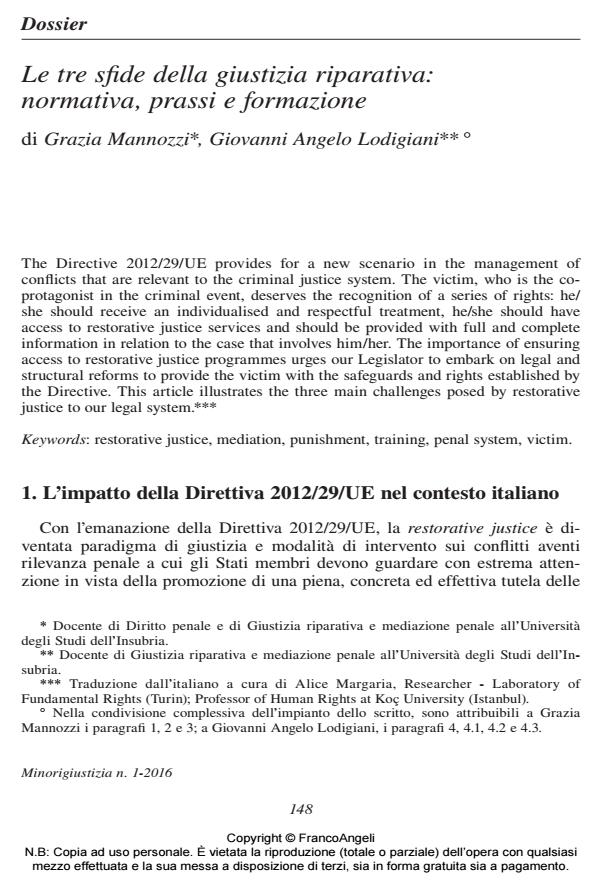Le tre sfide della giustizia riparativa: normativa, prassi e formazione
Titolo Rivista MINORIGIUSTIZIA
Autori/Curatori Grazia Mannozzi, Giovanni Angelo Lodigiani
Anno di pubblicazione 2016 Fascicolo 2016/1
Lingua Italiano Numero pagine 11 P. 148-158 Dimensione file 99 KB
DOI 10.3280/MG2016-001016
Il DOI è il codice a barre della proprietà intellettuale: per saperne di più
clicca qui
Qui sotto puoi vedere in anteprima la prima pagina di questo articolo.
Se questo articolo ti interessa, lo puoi acquistare (e scaricare in formato pdf) seguendo le facili indicazioni per acquistare il download credit. Acquista Download Credits per scaricare questo Articolo in formato PDF

FrancoAngeli è membro della Publishers International Linking Association, Inc (PILA)associazione indipendente e non profit per facilitare (attraverso i servizi tecnologici implementati da CrossRef.org) l’accesso degli studiosi ai contenuti digitali nelle pubblicazioni professionali e scientifiche
The Directive 2012/29/UE provides for a new scenario in the management of conflicts that are relevant to the criminal justice system. The victim, who is the coprotagonist in the criminal event, deserves the recognition of a series of rights: he/ she should receive an individualised and respectful treatment, he/she should have access to restorative justice services and should be provided with full and complete information in relation to the case that involves him/her. The importance of ensuring access to restorative justice programmes urges our Legislator to embark on legal and structural reforms to provide the victim with the safeguards and rights established by the Directive. This article illustrates the three main challenges posed by restorative justice to our legal system.
Parole chiave:Restorative justice, mediation, punishment, training, penal system, victim
Grazia Mannozzi, Giovanni Angelo Lodigiani, Le tre sfide della giustizia riparativa: normativa, prassi e formazione in "MINORIGIUSTIZIA" 1/2016, pp 148-158, DOI: 10.3280/MG2016-001016